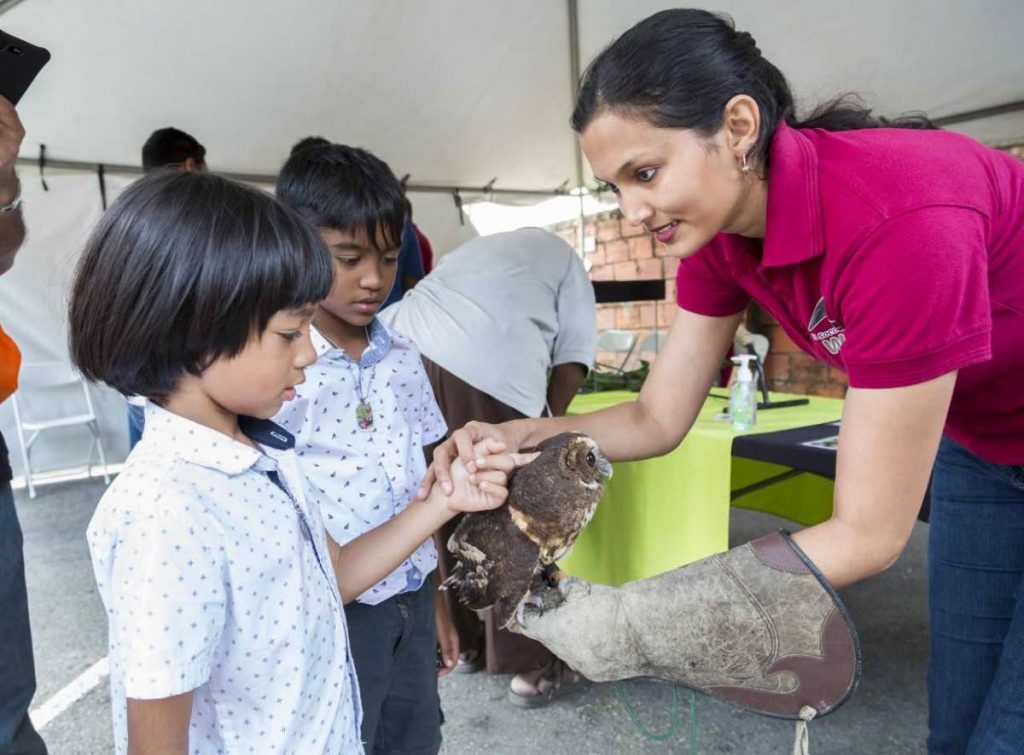Modernising special needs education in TT

DR RADICA MAHASE
AN informal poll of the registered members of Support Autism T&T (those with autism from ages three-21 years) shows that 61 percent of them are currently not attending any kind of formal educational institution.
A further investigation reveals that this figure is high because of unavailability of both public and private schools in some geographic areas; high cost of private schools and lack of access to public ones (mostly cases where the public schools cannot take the child unless the child has been allocated a teaching aide) and inability of the child to function in a traditionally structured school environment.
In TT we continue to adopt a rather outdated, monotonous approach to education. The physical structure of both public and private schools; the methods of teaching and our entire perspective on education have been practised since ancient times. Our society has changed in so many ways and the world is continuously changing but yet we in TT have continued to exist in our little bubble, practising outdated teaching methods, forcing students to cram information and pass exams.

The reason for our ancient educational system is not so much lack of information, as we live in a society which is bombarded with information from all sides. It is due to the general attitude that we adopt towards children and education on the whole. We treat every child as similar and as such, we teach each child in the same manner. This concept is flawed even with "normal" children and would account for so many students performing badly in academics.
More than ever, we need to change this mentality and approach when it comes to those with special needs. In the first place we need to understand and accept that every individual with autism and other special needs have different abilities and therefore will learn in different ways. Once we acknowledge this we can modernise special needs education in this country by:
Adopting a system of differentiated learning where each individual is taught at his/her level. The saying “everyone is a genius but if you judge a fish by its ability to climb a tree, it will live its whole life believing it is stupid” is most appropriate here.
Creating more sensory-friendly learning environments for those with special needs. For example, as much as we may advocate for inclusion of those with special needs into the regular public school system, a child who has sensitive hearing will have great difficulties in a noisy atmosphere. Therefore, the schools which are inclusive will need to have a quiet room or quiet zones.
Encouraging creativity – many children with autism are visual learners and some may be very good at craft, art, music and so on. An ideal learning environment will allow children the opportunity to participate in different activities, find the one that he or she likes and may be given a chance to excel at it?
Looking at education as a service rather than a business. While this may be more relevant to private schools, all schools need to adopt a service approach to education. The whole dialogue should be about the service we are providing within the schools and classrooms and whether or not we are meeting the needs of our students.
Changing our mentality –we believe that a child who does not pass for a prestige school is "not as bright" as the ones attending prestige schools and a child who does not excel academically is a "duncey head". For those with autism and other special needs, we need to stop thinking that they cannot learn or that they will never excel at something. We tend to look down on those who have excelled in non-academic areas and this general mentality of inferiority needs to be changed. Surely, the fundamental purpose of education is for everyone to learn something, whatever that may be and at whatever level?
In a world where we have access to limitless information on education and special needs, TT has remained stagnant in its attitude towards education in general. Even today there are not any educational facilities, private or public, that have really modernised their approaches towards those with special needs. This would only change however when we change our entire mentality towards education and towards those with special needs. As Henry David Thoreau said, “Let him step to the music he hears, however measured or far away.”
Dr Radica Mahase is founder/director, Support Autism T&T


Comments
"Modernising special needs education in TT"